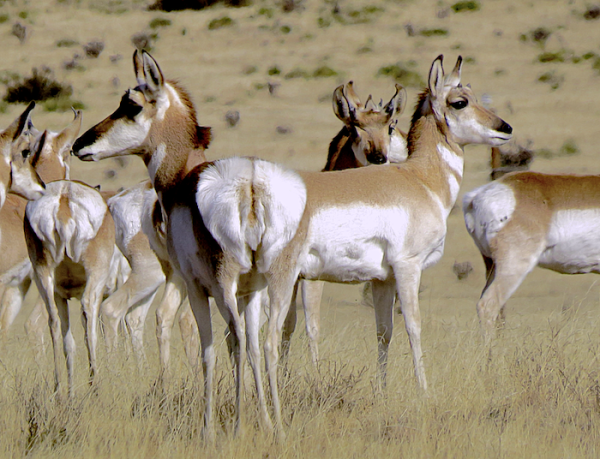Michigan: DNR Releases Deer Hunter Study Report
The Michigan Department of Natural Resources, in collaboration with DJ Case & Associates, recently released a report on a nearly yearlong study of Michigan deer hunters. Following up on recent DNR research into deer hunting participation trends, the project was designed to be completed before the 2017-2019 deer hunting regulations are established.
Report findings were presented at the April 13 Natural Resources Commission meeting. The full written report, which includes more than 100 pages of detailed information on the study process and results, is available online at michigan.gov/deer, under “MI Deer Resources.”
A few key findings included:
• Most respondents (79 percent) did not think the current deer hunting regulations are too complex.
• Differences of opinions across age categories were greater than differences between males and females.
• Regulations changes did not receive a majority of support among any group of hunters, though younger hunters generally were more supportive of changes than older hunters.
• As the hunter population ages, differences of opinions across age categories indicate the DNR should re-examine future support for regulations changes.
• Among options for possible discounts and prize drawings, a majority of younger hunters did believe they would be likely to purchase a multiyear license bundle at a discounted rate.
The study was conducted in two stages. The first included small group discussions to learn about opportunities and challenges for continued participation in deer hunting. A facilitator from DJ Case & Associates posed questions and directed participants to discuss their own deer hunting experiences and opinions as a group. Groups included hunters that are of particular interest due to prior research, including females and young adult males. Female participation has been on the rise, while young adult males are participating at lower rates than men of the same age during past decades.
“Group participants reported that as they grow older, their hunting partners continue to be those that first taught them to hunt – most often close family members,” said Brent Rudolph, DNR Wildlife Division social science coordinator.
As hunters get older and move away from those traditional partners and hunting places, they can find it challenging to continue to find the time to hunt, which is one threat to sustaining hunting traditions.
“We all want to protect our favorite deer hunting spots, but hunters should think beyond only mentoring youth and consider inviting adult hunters that might be struggling to find a place to hunt to join them from time to time,” Rudolph said.
The second stage of the study involved sending 188,000 hunters an email invitation to complete a survey over the internet. The survey evaluated hunting habits, determined opinions about possible changes to deer hunting regulations and measured interest in potential discounts or prize drawings for those who purchase deer licenses.
Anyone who had purchased a deer license over the past five years and who previously provided an email address to the DNR received an email invitation. The online survey was an efficient way to get much more input than was possible during the first stage of the study, from hunters of all ages and genders across the state.
Phil Seng, vice president of DJ Case & Associates, said he was a bit surprised at the low percentage of hunters who felt that current deer regulations are a barrier to hunting.
“It’s common for hunters to take any opportunity to complain about regulations, but 86 percent of survey responses indicated regulations are not a barrier,” said Seng. “Michigan should be cautious about changing regulations unless there is strong evidence to support the change. The DNR should continue to track these attitudes of hunters closely over time.”
DJ Case & Associates (www.djcase.com) is a team of communication specialists in natural resources conservation. They specialize in helping natural resources agencies and organizations better achieve their goals by conducting baseline research and program assessments, to strategic and operational planning, to implementation of communication strategies and tactics.
For more information about hunting opportunities or deer management in Michigan, go to michigan.gov/hunting or michigan.gov/deer.






